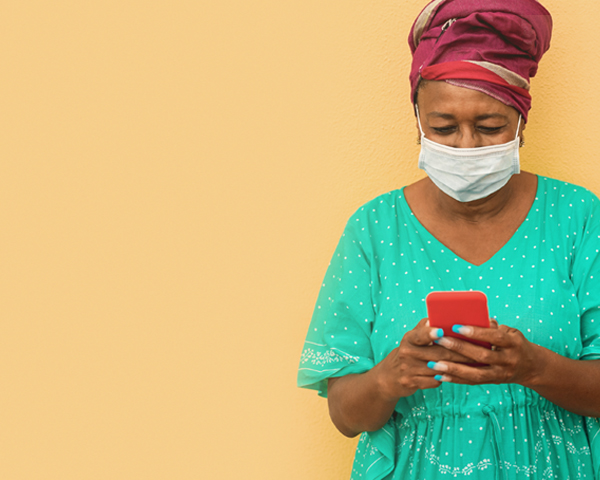
Supporting our community during COVID-19
COVID-19 has greatly impacted our lives and our physical and mental health. At DPV Health, we are here to provide you with support and resources to help you during these tough times.
We’ve pulled together a list of key service providers, community organisations and online resources that are available to support people during the pandemic and to provide relief and recovery services to our community.
Hotlines
- The following hotlines are available 24 hours, every day.
- If you suspect you may have COVID-19, call 1800 675 398.
- Need an interpreter? Call the Translating and Interpreting Service (TIS National) on 131 450.
- For general information or advice about COVID-19, call 1800 020 080.
This line can provide information on health, physical distancing measures, urgent relief needs (food, outreach, and personal care), reporting breaches of directions, information related to businesses, and information for people who work in building and construction. - Please use 000 for emergencies only.
- Translated information on COVID-19 click here
- Translated information on COVID-19 vaccination click here
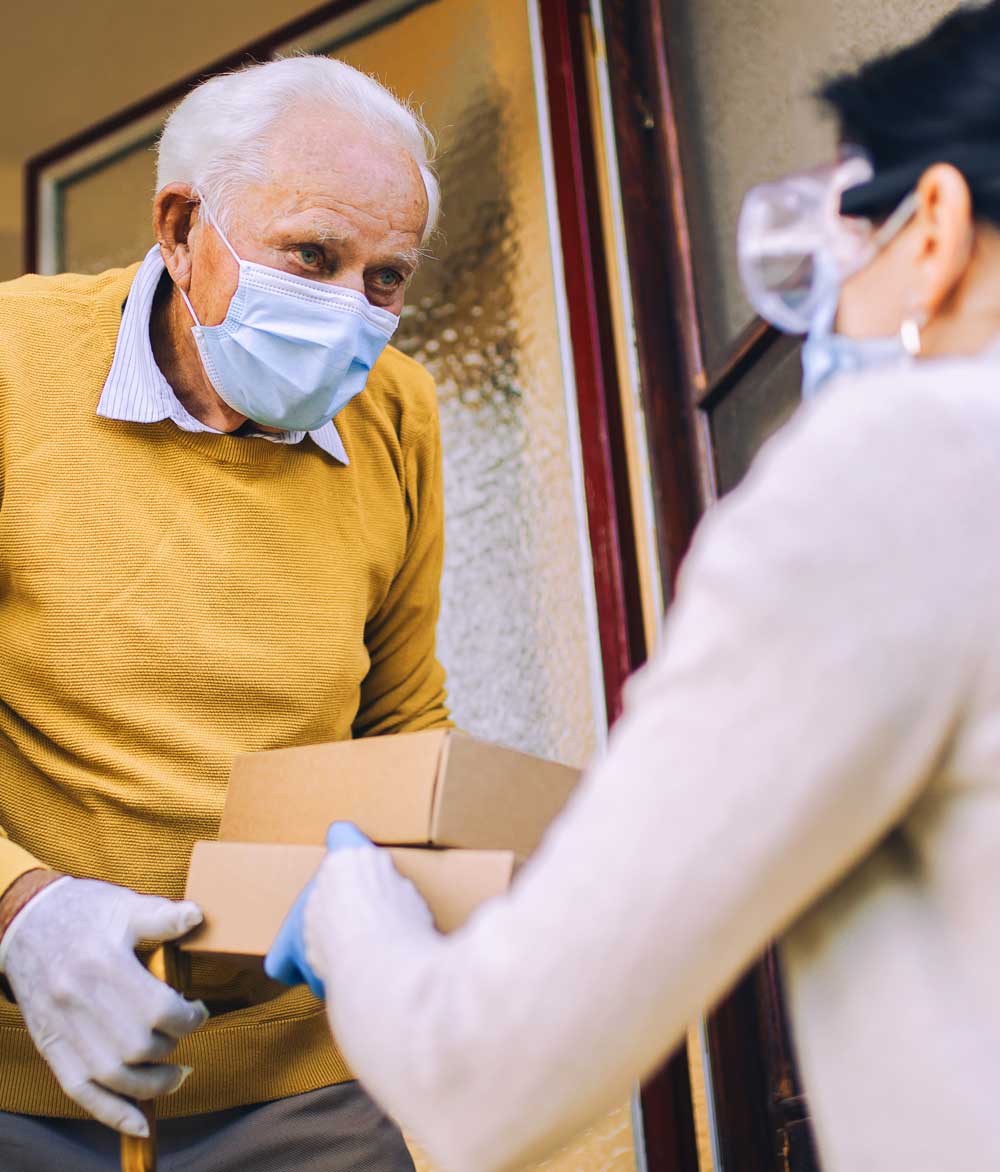
Support Services and Resources
DPV Health’s testing sites and information visit: COVID-19 Testing Sites
DPV Health’s vaccination services, booking and information visit: COVID-19 Vaccination Services
For all other vaccination sites in Victoria click here or call Coronavirus Hotline on 1800 675 398. For an interpreter, press 0.
Information on support available for residents in public housing due to COVID-19 including info on food and supplies, access to health care, family and mental health support, as well as alcohol and other drugs support will continue to be made available to residents.
Download the information sheet below:
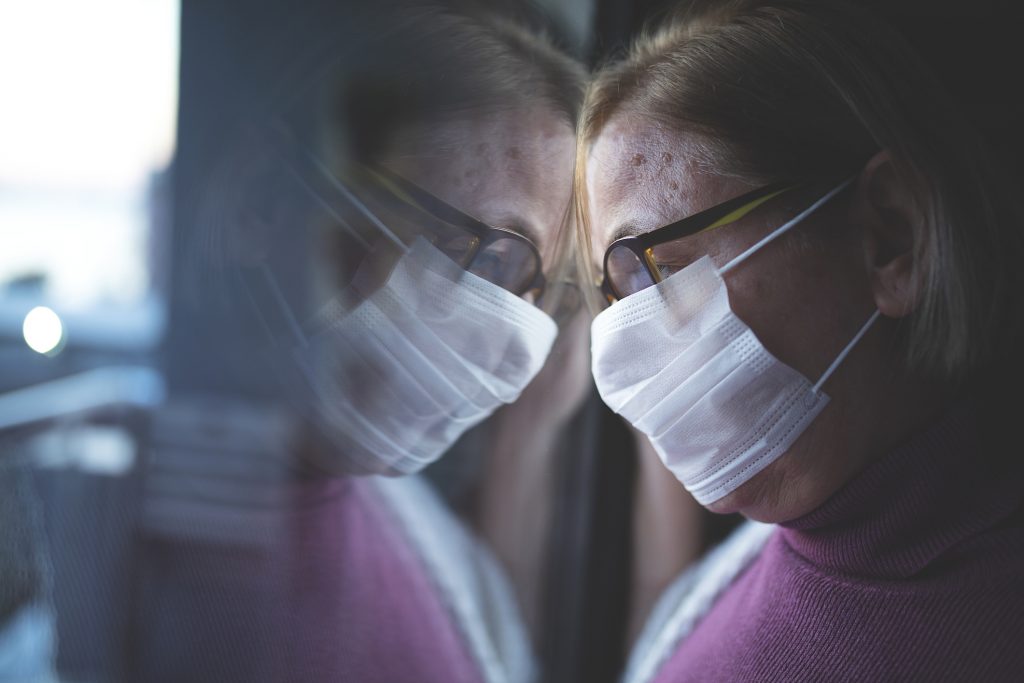
Be conscious of your Mental Health.
It’s normal to feel stress and worry when there is a health event happening in the community that is affecting people’s wellbeing, such as COVID-19. This can affect any person in the community who is concerned about the infection, with more specific concerns arising for people being tested, people in quarantine and people who have received a diagnosis. Family and friends can also experience similar mental health impacts.
Potential mental health impacts on people directly affected:
- Increased anxiety for self and others (this can be expressed as a fear for one’s own health, and a fear of infecting others)
- Psychological distress
- Perceived stigmatisation
- Social isolation
- Interruption to employment or study
- Impact on normal daily routine and functioning
Most people will manage with the support of family and friends, but others may need some extra help to keep things on track. Please contact Mental Health Services below if you need help.
Mental Health Services:
- DPV Health (Counselling, Social work & Psychology team): 1300 234 263 for an appointment (8:30 am to 5 pm Monday to Friday). Telephone counselling is available.
- HeadtoHelp: 1800 595 212
- Beyond Blue: 1300 22 4636
- Headspace: 1800 650 890
- Lifeline: (24-hour Crisis Line): 131 114
- Kids Helpline: 1800 551 800
- Uniting Kildon: 1800 002 992
- Relationships Australia: 1300 364 277
Do you know someone that feels isolated and needs a phone friend?
Staying connected to the community with a friendly person to chat to during this isolation time is more important than ever.
Our volunteer lead service, Hume Community Register have been making phone calls to isolated people living on their own for over 10 years. This FREE community service is run by experienced and friendly volunteers who know the importance that a phone call can make to the health and well-being of an isolated person.
Next time you need a friendly chat our volunteers are just a phone call away. Call our team on 8301 8836.

Physical distancing does not mean you are alone.
There are many changes that are taking place in our lives and society at the moment due to the COVID-19. It is a difficult time for many families within our community, causing a lot of stress, anxiety and hardship. Physical or social distancing in the time of Coronavirus, means more time at home, concerns about employment, less access to the things we like to do and impacts on mental health. There may also be increased pressure on families and relationships.
Evidence has shown that in times of stress, anxiety and uncertainty, the risk of gender-based violence and family violence tends to increase significantly, especially in relationships where violence is already occurring. During these unsettling times, DPV Health wants to ensure our community continues to feel safe and supported.
If you are feeling isolated, stressed or experiencing family violence, remember that help is at hand. Listed below are a number of services you can reach out to during this difficult time.
Violence against Women and Children Referrals:
- 1800 Respect National Helpline: 1800 737 732
- Safe Steps Crisis Line: 1800 015 188
- Orange Door (North East Metropolitan Area): 1800 319 355
- Northern Centre against Sexual Assault (NCASA): 1800 806 292
- Elizabeth Morgan House Aboriginal Women’s Service: 9482 5744
- Dijrra: 1800 105 303
- Child Protection: 13 12 78
- WIRE: (Women’s Information and Referral): 1300 134 130
- Victims Assistance and Counselling Program: 1800 819 817
- Whittlesea Community Connections: Legal Advice 9401 6655
Men’s Referrals:
- Men’s Referral Service: 1300 766 491
- DPV Health Men’s Behaviour Change Program: 1300 234 623
- DPV Health Men’s Case Management: 1300 234 623
LGBTIQ Referrals:
- With Respect: 1800 LGBTIQ (1800 542 847)
- Gay and Lesbian Switchboard (Vic.): 9663 2939
- Thorne Harbour Health: 9865 6700
If you need an interpreter, please call Translating and Interpreting Service (TIS National) on 13 14 50.
Let’s all take care of our physical and mental health during these challenging times. Now more than ever, let us show care, kindness and support within our own families and our communities.
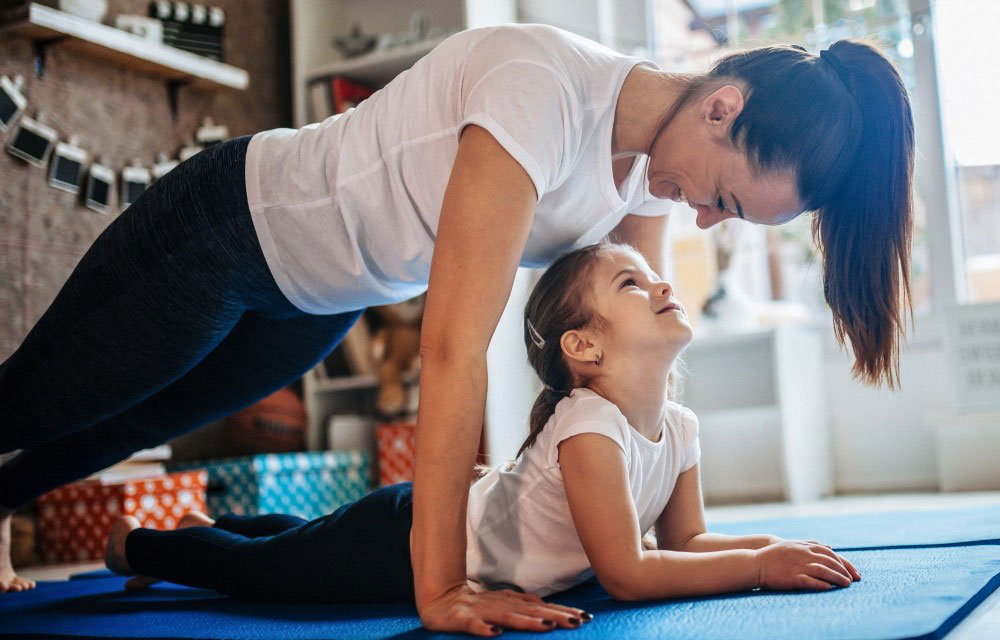
The COVID-19 pandemic has made it challenging to maintain a physically active lifestyle and has put restrictions on our day-to-day activities. Rather than be stressed about our current situation, let us use this as an opportunity to practice self-care and focus on our physical and mental wellbeing. Technology has given us access to a wealth of resources, which in turn make it possible for us to stay active and exercise within the comfort of our own homes. Check out these fun and FREE ideas on how to be active in your home or backyard. You might even discover a new activity that you really enjoy!
- 28 by Sam Wood – Join live workouts, Monday- Friday at 9 am via the official Facebook page, or visit https://www.facebook.com/samwood28/(children and adults)
- Fernwood Fitness – Visit https://www.fernwoodfitness.com.au/blog/free-fernwood-challenge-workoutto try the free workout challenge (adults)
- Joe Wicks – The UK fitness guru is streaming daily P.E sessions for children. Check out the Body Coach YouTube page for over 250 free workouts https://www.youtube.com/user/thebodycoach1/videos(children and adults).
- Centr – Chris Hemsworth is offering a 6 week free trial on his fitness app that includes a range of different workouts. Check it out at https://centr.com/join-us
- Queensland Health – Queensland Health’s comprehensive workout builder can help with your fitness goals, be it improving your cardiac fitness, strength or balance . Visit https://www.healthier.qld.gov.au/fitness/exercises/ for more details
- Yoga – If you prefer yoga click here to try out 30 days of yoga with Adrienne. Visit https://yogawithadriene.com/30days/
We know that staying active is one of the best ways to keep our bodies healthy. But did you know it can also improve your overall well-being and quality of life?
- It Can Make You Feel Happier – Exercise has been shown to improve your mood and decrease feelings of depression, anxiety and stress.
- It Can Help With Weight Loss – Some studies have shown that inactivity is a major factor in weight gain and obesity. Exercise is crucial to supporting a fast metabolism and burning more calories per day. It also helps you maintain your muscle mass and weight loss.
- It Is Good for Your Muscles and Bones – Physical activity helps you build muscles and strong bones. It may also help prevent osteoporosis.
- It Can Increase Your Energy Levels – Engaging in regular physical activity can increase your energy levels. This is true even in people with persistent fatigue and those suffering from serious illnesses.
- It Can Reduce Your Risk of Chronic Disease – Regular exercise has been shown to improve insulin sensitivity, cardiovascular fitness and body composition, yet decrease blood pressure and blood fat levels. Daily physical activity is essential to maintaining a healthy weight and reducing the risk of chronic disease.
- It Can Help Your Brain Health and Memory– Regular exercise improves blood flow to the brain and helps brain health and memory. Among older adults, it can help protect mental function.
- It Can Help With Relaxation and Sleep Quality – Regular physical activity, regardless of whether it is aerobic or a combination of aerobic and resistance training, can help you sleep better and feel more energized during the day.
- It Can Reduce Pain – Chronic pain can be debilitating, but exercise can actually help reduce it. Exercise has favourable effects on the pain that’s associated with various conditions. It can also increase pain tolerance.
Let us get started on our journey towards better physical and mental fitness. Together, let’s build a more healthy and positive community.

Supporting Community Wellbeing in Hume and Whittlesea
In response to the COVID-19 pandemic and the lockdown period, DPV Health is involved in two projects: Community Activation and Social Isolation Project (CASI) and Community Watch Partnership Project (CWPP) to provide support to communities in Hume and Whittlesea.
The Community Activation and Social Isolation Initiative (CASI)
The CASI Project is led by the Department of Human and Health Services and is part of the Victorian COVID-19 hotline. The project helps to better connect community members with friends, family and communities as well as providing support to establish new connections. DPV Health serves as the Lead Organisation and Community Connector for Hume, in partnership with Sunbury Community Health and other local partner organisations.
There are two components to this project:
- The initiative is directly accessible to the general public via the Victorian Coronavirus Hotline (1800 675 398). The initiative expands on their work by providing support to community members who may be experiencing social isolation. This is done by linking community members who call the hotline to Local Support Networks (LSN), which comprise of organisations who can connect them to social activities and other relevant community services.
- The initiative allows communities to map out and build on existing services that are appropriate and best meet the needs of their community.
To learn more about the CASI project click here to download more information.
For any questions and/or to become a member of the Local Support Network (LSN), email: populationhealth@dpvhealth.org.au
Community Watch Partnership Project (CWPP)
DPV Health and the Hume Whittlesea Primary Care Partnership (HWPCP) have joined forces, with assistance from Whittlesea Community Connections (WCC) and Banksia Gardens Community Services, to develop the Community Watch Partnership Project in response to the disruptions caused by COVID-19. The Project is supported by an exciting partnership of diverse and committed organisations from Hume and Whittlesea with a shared interest to promote wellbeing amongst vulnerable members of the community impacted by COVID-19.
The purpose of the Community Watch Project is to assist community organisations and groups, which play an important role in supporting all members of our community, during this period of restrictions and recovery. If your organisation has available staff and volunteers, the Community Watch Project will partner and work alongside you to:
- Develop a wellbeing check-in service to support the most vulnerable community members you work with
- Provide support to improve your existing service so vulnerable members of our community can access information and support to maintain wellbeing
In joining the Partnership, you will have the opportunity to:
- Access an online regional directory of services in the local catchment and identified resources
- Be part of a network of local organisations to share knowledge, resources, and reduce duplication
- Be part of an evaluation to understand how organisations in Hume and Whittlesea have supported their community during lockdown and recovery
Interested in being involved or learning more about the project?
- Access our Information sheet (see below)
- Email populationhealth@dpvhealth.org.au
- Call Neela Konara (Team Leader – Population Health, DPV Health) on (03) 8401 2751
Resources:
Testing positive for COVID-19
If you test positive for COVID-19 you must immediately isolate.
Call the National Coronavirus Helpline for information about how to look after yourself when you are sick with COVID-19.
Download the facts sheet on “What to do if you have tested positive for COVID-19″
For translated information in your language click here.
Close contacts
You are a close contact if you:
- live in the same house as someone who tests positive
- spent 4 hours or longer with someone in a home, or health or aged care environment
- are determined as one by your state or territory health department
- If you are a close contact of someone who has COVID-19 you must isolate for 7 days (10 days in South Australia) from the last time you were in contact with that person
- If you have symptoms you should visit your nearest testing clinic as soon as possible
- If you have no symptoms you should take a rapid antigen test at home
Rapid antigen tests will become increasingly available at supermarkets and pharmacies. Do not enter pharmacies, supermarkets or other retail outlets if you have symptoms or suspect you have been exposed to COVID-19. Go to a testing clinic or ask a family member or friend to get a test and deliver it safely to you. Learn more about rapid antigen tests.
Isolating if you have COVID-19
It is an Australian public health requirement that anyone diagnosed with COVID-19 must isolate. If you have the virus, you can pass it on to others. Isolating protects the people around you and the broader community from COVID-19.
Isolation means:
Staying at home – do not attend work or school, visit public areas, or travel on public transport, in taxis or ride-share services. If you have an appointment you cannot miss – such as a visit to a doctor, family violence service or police – you must tell them that you have COVID-19.
You should stay separated from other people in your house. Stay in a separate, well-ventilated room away from other people.
If you cannot isolate in a separate room you should:
- avoid shared spaces in the house as much as possible
- wear a mask when moving through shared areas
- wipe down any surfaces you touch COVID positive
- if you can, use a separate bathroom that others do not use. If you share a bathroom, wipe down any surface you touch and flush the toilet with a closed lid
- do not let visitors enter your home, unless they are providing necessary medical or personal care, or emergency services
- have all groceries and other essential items delivered to your home
The people who usually live in your house with you can stay there if they are unable to live somewhere else during this time. If they stay, they are contacts and need to isolate too.
If you have a household contact who has a weak immune system, is elderly or has another risk for severe COVID-19, contact your state/territory health department to see if they can help with finding them places to stay.
Ensure you share this information with the members of your household.
COVID-19 Test & Isolate National Protocols – Download here
Managing symptoms
Most people with COVID-19 experience only mild symptoms, or no symptoms at all (asymptomatic). These can be managed with over-the-counter medication. Find out more about managing COVID-19 at home.
Try to get plenty of rest, drink lots of water and eat well. You can still do moderate exercise if you feel well enough, within your home and/or garden if you have one.
Seek urgent medical attention if develop severe symptoms such as:
- difficulty breathing
- an oxygen level of less than 92% when tested with a pulse oximeter
- blue lips or face
- pain or pressure in the chest
- cold and clammy, or pale and mottled, skin
- fainting or collapsing
- being confused
- becoming difficult to wake up
- little or no urine output
- coughing up blood
Call 000 if you are unsure if your symptoms are severe use the HealthDirect COVID-19 symptom checker.
COVID Positive Pathways Program
The program is aimed at supporting those who fall into the low-risk category ie. are younger, vaccinated and without comorbidities, to manage their illness safely at home. Staffed by allied health clinicians, nurses, GPs and admin officers, this phone-based program will provide advice to those with concerns about their symptoms, assisting them to monitor their condition and escalate their care to Northern Health as needed.
COVID Positive Pathways makes sure every person is cared for in the best possible place, whether at home or in a hospital bed, depending on their personal needs and circumstances.
How will I be assessed for support?
If your COVID-19 test result is positive, you will receive a text message from the testing laboratory confirming your diagnosis. You will receive a second text message from the Department of Health. It will include a link to a short survey to assess your care needs.
It is important to complete the assessment surveys and answer these calls so you can be connected to the right care pathway for your needs. If you are unable to complete the surveys you will receive a follow-up phone call from DPVHealth.
Your care will be personalised for your needs and circumstances, and if your condition changes over the course of your illness you may be moved to a different care pathway.
For more information visit: COVID Positive Pathways | Coronavirus Victoria
Most people who test positive for COVID-19 recover completely, but some people may develop long COVID.
Talk to your GP if you are experiencing ongoing mental health issues such as:
- trouble thinking clearly, focusing, or remembering
- depression, anxiety or other mental health problems
For more information and updates, visit: www.health.gov.au/health-alerts/covid-19/testing-positive
COVID-19 Information Video's - Translated Languages
Care and support you can trust, so you can keep doing what you love









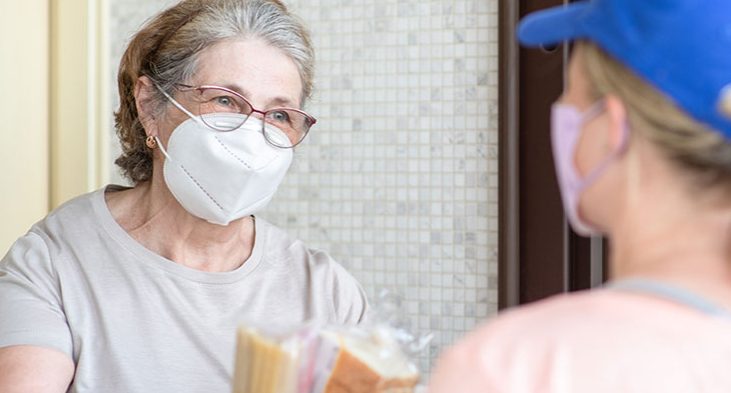
 Language
Language